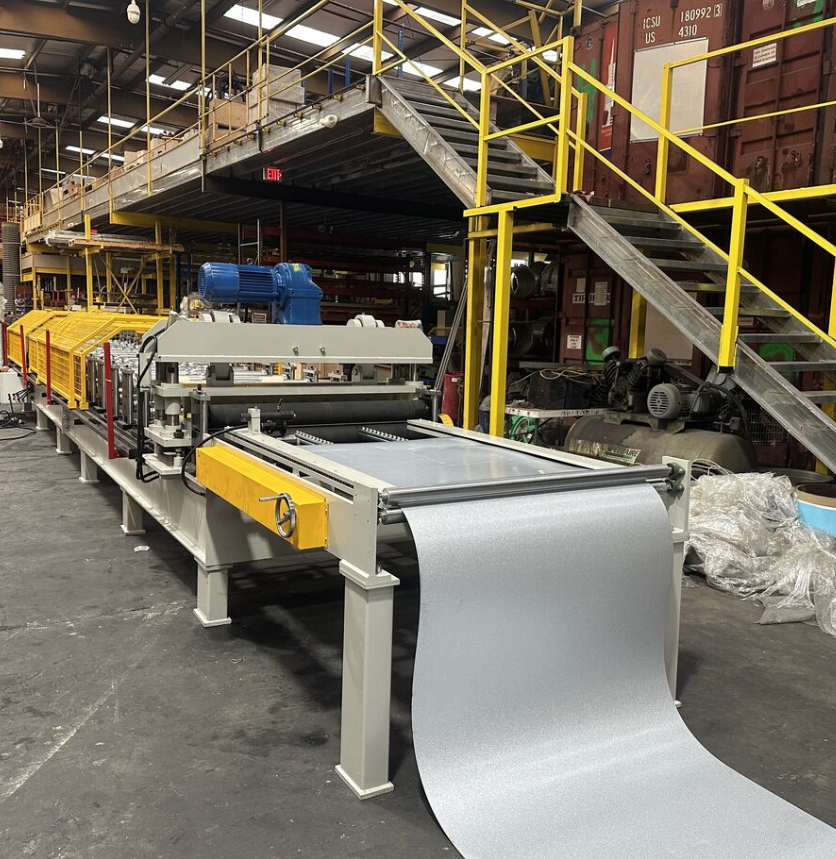To express an interest in this machine please submit the form below.

Not Sure What Machine You Need?
Select Your Profile, We'll Match It
Choose your desired profile drawing, and let Machine Matcher connect you with the best roll forming machine tailored to your needs.
Browse Profiles



Roofing sheet roll forming machines are specialized equipment designed to produce high-quality metal roofing sheets used in residential, commercial, and industrial buildings. These machines automate the production of roofing profiles, ensuring precision, durability, and consistency while reducing labor and material waste.
In the state of Georgia, USA, roofing construction is a booming industry, driven by urban development, reconstruction efforts, and a growing preference for metal roofs due to their durability and weather resistance. This blog provides an overview of roofing sheet roll forming machines tailored to the Georgia market.
A roofing sheet roll forming machine is an advanced system that transforms metal coils into custom roofing sheets. The process involves feeding the metal coil through a series of rollers designed to shape the material into the desired profile.
The machine can produce a variety of roofing sheet profiles, including trapezoidal, corrugated, and standing seam panels. These profiles are widely used in Georgia, where they must withstand heavy rain, heat, and occasional storms.
Key features of roofing sheet roll forming machines include:
The machine can produce various profiles such as corrugated, trapezoidal, and standing seam roofing sheets. Custom profile rollers can be added based on requirements.
Yes, it is compatible with galvanized steel, aluminum, and color-coated steel with thicknesses ranging from 0.3 mm to 0.8 mm.
The standard production speed is 10–15 meters per minute. However, high-speed options can achieve up to 30 meters per minute.
Absolutely. The machine is designed to meet U.S. power standards (240V/60Hz) and safety regulations, making it ideal for the Georgia market.
Setup typically takes 2–3 days, including installation and operator training.
Yes, additional features such as stackers, remote PLC systems, and coil handling systems can be integrated.
Roofing sheet roll forming machines are indispensable for the roofing industry in Georgia, USA. These machines offer efficiency, customization, and high output to meet local market demands. With a robust design, easy operation, and compliance with U.S. standards, these machines are a valuable investment for roofing contractors and manufacturers.
For more information or to request a quote tailored to your specifications, contact us today!
Copyright 2026 © Machine Matcher.